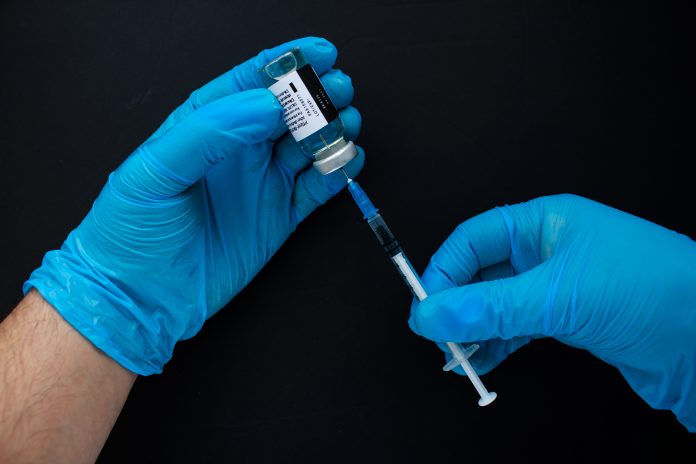Yesterday (14 April) EU President Ursula von der Leyen announced that the Commission would create a third contract with Pfizer, for 1.8 billion doses between 2021 to 2023
In her announcement, President von der Leyen said that the European Commission are working with BioNTech and Pfizer to bring forward a pre-existing delivery of 50 million doses.
While these vaccines were expected in the last couple of months in 2021, they will now arrive much sooner – starting in April.
The new contract asks that everything is done in the EU
The bloc are moving to supplement their sudden lack of vaccines – after they received 60% less AstraZeneca doses than expected, beginning an ongoing feud between the UK drugmaker and the Commission.
President von der Leyen said: “I want to thank BioNTech-Pfizer. It has proven to be a reliable partner. It has delivered on its commitments, and it is responsive to our needs.”
Negotiations will begin with the suggestion of 1.8 billion doses, from 2021 to 2023. But with the sped-up delivery of 50 million doses, existing contracts suggest that 250 million Pfizer doses are on their way.
The new contract with Pfizer will ask that “all essential components”, including the production of the vaccines, happens within Europe. This is in light of AstraZeneca vaccines being created in the EU, and sent out across the globe – a situation that led to Italian authorities seizing some of the vaccines before they could cross the border.
This will be the third contract between the EU and the drugmaker.
The EU will be drawing on all available vaccines to reach their goal of 70% vaccination across the population, with 27 million of 447.7 million currently vaccinated.
mRNA vaccines ‘proven their worth’, says von der Leyen
President von der Leyen explicitly suggests that mRNA-based vaccines would be the preference of the EU, which rules out AstraZeneca. She said: “At a certain point in time, we might need booster jabs to reinforce and prolong immunity; and if escape-variants occur, we will need to develop vaccines that are adapted to new variants; and we will need them early and in sufficient quantities.
“Having this in mind we need to focus on technologies that have proven their worth. mRNA vaccines are a clear case in point.”
According to data from a study on vaccinated healthcare workers in the US, Pfizer appears to be working at 90% efficiency in real world circumstances.
Currently, many countries in the EU are limiting use of AstraZeneca vaccines in various age-groups due to an emerging link to blood clots. This is a rare and yet unproven occurrence. For comparison, birth control creates a higher likelihood of blood clots than the COVID vaccine.




![Europe’s housing crisis: A fundamental social right under pressure Run-down appartment building in southeast Europe set before a moody evening sky. High dynamic range photo. Please see my related collections... [url=search/lightbox/7431206][img]http://i161.photobucket.com/albums/t218/dave9296/Lightbox_Vetta.jpg[/img][/url]](https://www.openaccessgovernment.org/wp-content/uploads/2025/04/iStock-108309610-218x150.jpg)






